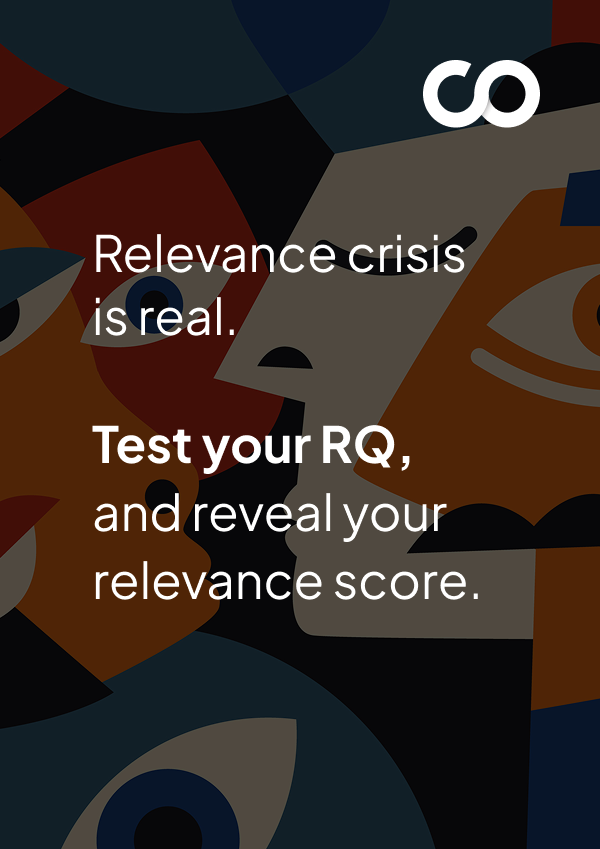Website Development for Doctors
Website Design and SEO for Medical Practices and Doctors

Are Missed Clicks Turning Into Missed Appointments?
Many medical practices still rely on outdated websites that look unprofessional, aren’t mobile-friendly, lack online booking capabilities, or fall short in terms of SEO.
Patients today expect fast-loading pages, secure forms, and accurate information they can trust. A poor digital experience means missed appointments, low patient confidence, and reduced visibility in local searches: issues that directly hinder practice growth.
Codewave designs and develops healthcare websites that strike a balance between compliance, usability, and performance. We build responsive sites using frameworks like React.js, Next.js, and WordPress (with healthcare-focused plugins) to ensure speed and scalability.
For SEO, we implement structured data, schema markup, and HIPAA-conscious content hierarchies that make your practice discoverable and credible. Our integrations include secure patient forms, appointment booking APIs, and telehealth modules, making it easier for patients to connect with you.
By blending design thinking with proven SEO practices, we deliver measurable outcomes, such as faster load speeds, higher search rankings, and increased appointment bookings. The result? A digital gateway that inspires trust and supports long-term practice growth.

Here’s what you can expect:
3x
Faster Medical Web Design
30%
Less Development Cost
Download The Master Guide For Building Delightful, Sticky Apps In 2025.
Build your app like a PRO. Nail everything from that first lightbulb moment to the first million.
Derisk Your Digital Front Door with Secure, Compliant Design
Outdated websites, weak SEO, and compliance gaps cost medical practices visibility and patient trust. We build secure, responsive websites with real-time booking functionality, HIPAA compliance, and AI-driven SEO to increase appointments, strengthen credibility, and make your practice discoverable online.9+
For many practices, the website is the first impression patients get of the care they’ll receive. Outdated designs, cluttered navigation, or non-mobile layouts send the wrong message, often leading patients to competitors with modern, user-friendly sites.
Codewave develops customized, responsive medical websites using React.js and Next.js for high-speed rendering and WordPress CMS for flexible content management. Appointment calendars with real-time booking are powered by integrations with tools like Calendly, Zocdoc, or custom APIs connected to EHR/EMR systems, ensuring easy scheduling.
To build credibility, we add social proof elements via Google Reviews, Healthgrades, or custom review widgets. For engagement, we embed multimedia support with secure video hosting (using the YouTube API and Vimeo). The result is a professional, patient-friendly site that improves trust and drives conversions.
Example: A healthcare clinic complained that patients browsing on their phones often abandoned the site because it took too long to load. With responsive Next.js builds, they will be able to reduce load times, making it easy for patients to access services and schedule appointments instantly.
Many clinics face website crashes or downtime during peak traffic periods, while outdated shared servers and unpatched plugins leave them exposed to malware, ransomware, and brute force attacks. This frustrates patients and creates an impression of unreliability.
We offer cloud hosting on AWS and Azure, equipped with auto-scaling groups to handle traffic spikes without performance dips, and CDN integration via Cloudflare or AWS CloudFront for seamless global content delivery. We enforce SSL/TLS certificates for all pages, ensure daily automated backups with versioning and rollback options, and manage plugin/CMS updates via CI/CD pipelines to avoid vulnerabilities.
Our team utilizes Datadog, New Relic, and AWS CloudWatch for round-the-clock monitoring, with alerting systems that detect anomalies before they impact patient care. You also receive Google Analytics dashboards, custom traffic visualizations, and weekly visitor trend reports to support data-driven decision-making.
The outcome is a reliable, fast, and secure website that patients can access at all times, including during periods of high traffic.
Example: Clinics often complain of facing downtime during flu season when traffic increases manifold. Hosting on AWS with auto-scaling will let them keep booking portals live, ensuring patients never experience a “site unavailable” message during peak demand.
Non-compliance with HIPAA or ADA standards can expose practices to legal risks and alienate patients. Unsecured forms may leak Protected Health Information (PHI), and inaccessible designs can exclude patients with visual or mobility impairments, damaging trust and credibility.
Our experts ensure compliance by building HIPAA-secure forms using SSL/TLS and encrypted endpoints that transmit data into cloud-based vaults (AWS KMS, Azure Key Vault) with role-based access controls and audit trails. All submissions are logged for traceability. Staff access is protected by two-factor authentication (2FA) and role-based authentication.
For ADA compliance, we implement WCAG 2.1 guidelines, including semantic HTML5 structures, ARIA roles, screen-reader compatibility, and keyboard navigation. Contrast ratios, alt-text validation, and video captioning are standardized across the site.
The outcome is a safe and inclusive platform that builds patient confidence and meets stringent regulatory requirements.
Example: Patients who submit their medical histories online often have concerns that their information will be misused. Implementing HIPAA-encrypted forms will ensure that submissions are stored securely in cloud vaults, accessible only by authorized personnel, thereby maintaining confidentiality and patient trust.
Well-designed sites often remain invisible due to the absence of schema markup, inadequate metadata, or weak content structures. Patients searching locally may never find the practice, leading to lost appointments.
We combine AI-powered tools, such as Semrush, Clearscope, and SurferSEO, with manual optimization. We implement structured data (JSON-LD for FAQs and schema markup for medical conditions), fine-tune metadata, and improve site speed via Lighthouse audits, image compression, and code splitting.
We also deliver E-E-A-T-compliant health content libraries aligned with Google’s medical content standards, covering treatments, symptoms, and FAQs to improve authority. Combined with local SEO (Google Business Profile integration and Name, Address, Phone Number (NAP) consistency), you gain visibility where patients search most frequently.
The outcome is improved rankings, increased search traffic, and a stronger lead pipeline.
Example: A clinic offering allergy treatments struggled to appear in “near me” searches. After implementing schema markup and condition-specific content, the clinic will be able to move from page three to page one, thereby increasing the number of inquiries.
Without portals, your staff are burdened with endless calls for forms, test results, or prep instructions. Patients endure delays and frustration, while staff efficiency dips.
To combat these issues, we build secure portals that are integrated with EHR/EMR systems through HL7 or FHIR APIs, enabling the smooth exchange of patient data. Features include online intake forms, questionnaires, lab result delivery, and downloadable privacy notices. Data transfer uses encrypted APIs with OAuth2 and JWT authentication, while portal access is secured with role-based permissions.
Built on a mobile-first framework (React + responsive UI libraries like Material-UI), portals provide an intuitive experience across devices. The outcome is streamlined operations, reduced call volumes, and improved patient empowerment.
Example: Patients often call clinics repeatedly for pre-surgery instructions. A secure portal will make those documents instantly available, significantly reducing call volume and allowing staff to focus on care instead of repetitive administrative tasks.
Generic branding can make even trusted practices appear unprofessional, thereby weakening patient confidence. Inconsistent logos, mismatched colors, or unclear tone create confusion and reduce credibility.
Our team conducts brand discovery workshops to define identity pillars. Using Figma, Sketch, and Adobe XD, we design scalable design systems that unify typography, color palettes, iconography, and UI kits.
Patient-focused messaging frameworks are created through journey-mapping workshops, ensuring that tone and voice resonate consistently across websites, emails, and portals. Deliverables include comprehensive digital brand guidelines with usage standards for web, mobile, and print assets.
The outcome is a strong, professional identity that patients recognize and trust across every digital and physical interaction.
Example: Clinics with inconsistent logos across their website, emails, and forms often appear unprofessional. By implementing unified brand elements, they will be able to create consistency across every touchpoint, enhancing recognition and patients’ confidence in the practice.
Outdated website deterring patients from visiting your practice?
Start building one that earns their trust. Book Your Website Strategy Call
Our Anti-Drop-Off Strategy for Healthcare Websites
We’ve seen many medical practices lose patients to slow, outdated, and non-compliant websites. That’s why our approach begins with understanding your workflows, designing secure and scalable platforms, and ensuring patients can find and trust you online.
We begin by engaging key stakeholders, including practice managers, physicians, and front desk staff, to map the digital landscape and define future goals. This involves reviewing analytics, assessing booking flows, and auditing HIPAA/ADA compliance.
Tools like Jira and Confluence capture requirements, while Miro workshops visualize patient journeys and empathy maps. Competitor research further benchmarks search visibility and user experience.
This phase reveals patient drop-offs, compliance gaps, and technology bottlenecks that slow operations. The outcome is a five- to ten-year roadmap to build a scalable, compliant growth engine, rather than just a cosmetic redesign.
With a clear roadmap, our architects design the site’s structure, creating an information architecture and page hierarchies that organize specialties, doctor bios, treatments, and booking flows. Using headless CMS platforms like Strapi or WordPress REST APIs, we build flexible modules that enable your team to update content easily without requiring developer support.
Wireframes and design systems in Figma incorporate WCAG 2.1 accessibility standards, including contrast, ARIA roles, and semantic layouts, from the outset. Booking workflows are integrated with HL7/FHIR APIs to sync with EHR systems, while JSON-LD structured data for clinics, conditions, and practitioners enhances search visibility.
The development phase turns these designs into a live, high-performance platform. Using Next.js with React and TypeScript, we deliver responsive interfaces optimized for Core Web Vitals across all devices, utilizing Tailwind CSS and Material-UI to provide consistent styling. Next/Image ensures that responsive media assets are lightweight and efficient.
Location and wayfinding are added via Google Maps APIs. Content workflows remain smooth through CMS integrations, while automation via GitHub Actions and Terraform powers CI/CD pipelines for seamless deployments.
A medical website's visibility requires a strong SEO foundation. We combine AI-powered keyword clustering with manual content mapping, ensuring every service page targets patient-intent queries. We implement structured data, canonicalisation, XML sitemaps, and robots.txt optimisation to keep your site technically sound.
Technical SEO encompasses clean URL structuring, canonicalization, preventing duplicate content, utilizing robots.txt and sitemaps, and performance tuning with Lighthouse. Our team also sets up content governance systems in Notion or Confluence, so updates remain consistent, accurate, and compliant with HIPAA and ADA requirements.
Before launch, the site undergoes rigorous testing for reliability, compliance, and accessibility. Automated tests with Jest and Cypress validate functionality, while axe, WAVE, and Pa11y check accessibility alongside manual screen-reader and keyboard tests. Security is reinforced through OWASP ZAP scans, dependency checks, and WAF/DDoS protections.
Performance is validated with k6 load testing and Lighthouse audits to simulate peak use. Monitoring tools like Sentry and New Relic are pre-configured. A blue-green deployment strategy minimises risk, and Google Search Console with GA4 event tracking is enabled at launch to monitor performance and indexing.
Once live, the site adapts to the patient's and compliance needs. Hosting on AWS or Azure ensures scalability, daily backups, and protection against outages, while Datadog and CloudWatch deliver real-time proactive alerts.
We maintain compliance through quarterly ADA audits and HIPAA-aware workflows, which utilize encrypted forms, role-based access, and audit logs. GA4 and Search Console provide performance insights, while Looker Studio turns dashboards into actionable visuals.
We run A/B tests with VWO or Optimizely, monitor patient sentiment through Google Reviews and Healthgrades, and conduct regular SEO sprints and compliance reviews to ensure your platform remains secure and visible.
The Tech Stack Behind Secure, Patient-Friendly Digital Care
Category | Tech Stack |
Responsive Frontend Development | React.js, Next.js, TypeScript, TailwindCSS, Material UI, HTML5, CSS3 |
Backend & CMS | Node.js, Express.js, WordPress (Headless via REST APIs), Strapi, PHP |
Database & Content Management | PostgreSQL, MySQL, MongoDB, AWS RDS |
Patient Booking & Portal Integration | HL7/FHIR APIs, Zocdoc API, Calendly API, Custom EMR/EHR Connectors |
SEO & Content Optimisation | Semrush, SurferSEO, Clearscope, Google Search Console, Lighthouse, JSON-LD Schema (MedicalCondition, Physician, FAQ) |
Compliance & Accessibility | HIPAA-Compliant Forms, AWS KMS, Azure Key Vault, SSL/TLS Encryption, WCAG 2.1 Accessibility Standards |
Hosting & Scalability | AWS (EC2, S3, CloudFront), Azure Web Apps, Cloudflare CDN, Auto-Scaling Groups |
Testing & QA | Jest, Cypress, Playwright, Axe Accessibility Testing, OWASP ZAP, k6 Load Testing |
Analytics & Monitoring | Google Analytics 4, Looker Studio, Sentry, Datadog, New Relic |
Continuous Integration / Deployment | GitHub Actions, Jenkins, GitLab CI/CD, Terraform |
Branding & Design Systems | Figma, Adobe XD, Sketch, Miro |
Collaboration & Documentation | Jira, Confluence, Notion, Slack, Microsoft Teams |
Real Feedback, Stronger Patient Care
Hear directly from clinics, specialists, and multi-location healthcare providers who have grown their patient base with our custom website design and SEO services.
Explore our portfolio to see how we’ve helped practices like yours turn their websites into reliable engines for growth and patient care.
We transform companies!
Codewave is an award-winning company that transforms businesses by generating ideas, building products, and accelerating growth.
A Network of Excellence. Our Clients.
Frequently asked questions
Yes, we can review, update, and enhance your existing medical website. We help redesign outdated layouts, improve SEO, and ensure compliance with HIPAA and ADA. Updates may include staff changes, new services, insurance plan modifications, or refreshed patient forms to keep your site current and credible.
A medical practice website should feature a mobile-friendly, responsive design, profiles for doctors and services, HIPAA-secure forms, ADA-compliant accessibility, and online appointment booking capabilities. Essential features also include patient portals, updated contact details, insurance information, health resources, and SEO-optimized content to ensure patients can easily find and trust your practice.
The cost of a medical practice website depends on multiple factors, including the number of content pages, required features like online booking, patient portals, or telehealth integrations, and whether you need a custom, responsive design. Pricing is also influenced by SEO and marketing setup, HIPAA/ADA compliance, hosting and security needs, and the level of professional expertise involved. Ongoing maintenance, updates, and content creation further impact overall costs.
We design medical websites in accordance with the Web Content Accessibility Guidelines (WCAG) 2.1, ensuring they are both inclusive and compliant. Key measures include alt text for images, proper color contrast, keyboard navigation, and screen-reader compatibility. By embedding accessibility into layouts and content, we make sure all patients, including those with disabilities, can use your website effectively.
We typically recommend WordPress or a headless CMS like Strapi for medical websites because they are reliable, secure, and easy to update without technical expertise. These platforms support HIPAA-compliant workflows, SEO optimization, and scalability. We also provide training and ongoing support, enabling you to manage updates confidently, without relying on developers for every change.
Most in demand
Latest thinking
Your website should bring patients in, not push them away.
Schedule Your Consultation Today































































